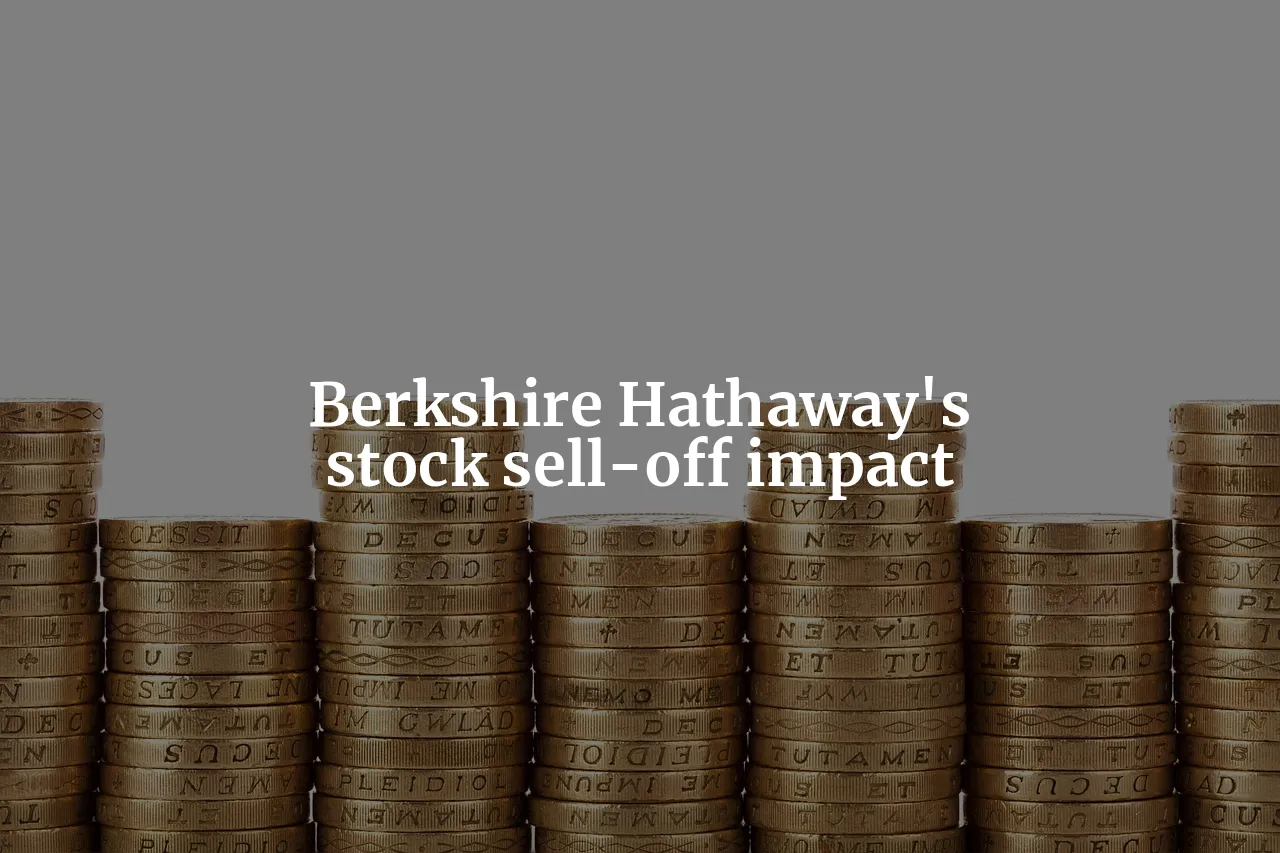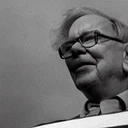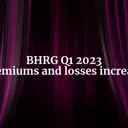Tags: Cash
This fanpage is not officially affiliated with Berkshire Hathaway: Disclaimer
Berkshire Hathaway's Q1 2023 stock sell-off has significant implications for shareholders, including a shift in investment strategy towards a preference for cash over stock investments. The company's cash pile has grown to $130.6 billion, providing more flexibility for future strategic investments and acquisitions, but also exposing the company to risks such as inflation and low-interest rates. The reduced expectations for stock market returns from Warren Buffett and Charlie Munger could signal a broader shift in investor sentiment. Shareholders should closely monitor the company's investment strategy and portfolio performance to make informed decisions about their investments.

Introduction
Berkshire Hathaway, the multinational conglomerate led by Warren Buffett, has made headlines with its significant stock sell-off in Q1 2023. The company sold shares worth $13.3 billion during this period, while investing little in the US equity market1. This article aims to provide a comprehensive analysis of the impact of this stock sell-off on Berkshire Hathaway's investment strategy and cash pile. We will delve into the reasons behind the sell-off, the company's investment activity in Q1 2023, and the growth of its cash pile. Additionally, we will discuss the performance of Berkshire Hathaway's businesses, its stake in Apple, and the views of Warren Buffett and Charlie Munger on the stock market.
Berkshire Hathaway's Q1 2023 Stock Sell-off
In Q1 2023, Berkshire Hathaway sold a staggering $13.3 billion worth of stock1. This move came as a surprise to many, as the company had been known for its aggressive investment strategy in the past. In the same period, Berkshire Hathaway only bought $2.9 billion worth of stocks2. This significant sell-off can be attributed to several factors, including unappetizing valuations and a cautious approach to investing in the US banking system due to rapid deposit flight1.
The impact of this sell-off on Berkshire Hathaway's portfolio has been substantial. The company's cash pile increased by $2 billion to $130.6 billion in Q1 20231. This growth in cash holdings indicates a shift in the company's investment strategy, as it now seems to prefer cash over stock investments3. This change in strategy could have long-term implications for the company and its shareholders ↗.
Berkshire Hathaway's Investment Strategy in Q1 2023
Berkshire Hathaway's investment activity in Q1 2023 was relatively subdued compared to its previous aggressive approach. The company invested only $2.9 billion in other publicly traded businesses during this period1. This lack of investment in the US equity market can be attributed to the company's struggle to put its cash to work due to unappetizing valuations1.
In addition to the stock sell-off, Berkshire Hathaway also put $4.4 billion towards repurchasing its own stock in Q1 20231. This move further highlights the company's cautious approach to investing in the current market. The presence of Berkshire's vice chairs, Gregory Abel and Ajit Jain, at the annual meeting alongside Buffett and Munger signals a potential shift in the company's leadership and investment strategy1.
Berkshire Hathaway's Cash Pile
At the start of 2023, Berkshire Hathaway's cash pile stood at $128.6 billion. By the end of Q1 2023, this figure had risen by $2 billion to $130.6 billion1. This growth in the company's cash holdings can be attributed to the stock sell-off and the company's preference for cash over stock investments3.
Berkshire Hathaway invests the vast majority of its cash in short-term Treasury bills and bank deposits1. Income from these short-term bills and cash-like deposits surged to $1.1 billion in Q1 2023, up from $164 million a year prior1. This increase in income from cash holdings further supports the company's current preference for cash over stock investments.
The growth of Berkshire Hathaway's cash pile has significant implications for the company's investment strategy. With a larger cash reserve, the company has more flexibility to make strategic investments and acquisitions in the future. However, this cash-heavy approach also comes with risks, as it exposes the company to potential losses from inflation and low-interest rates.
Berkshire Hathaway's Earnings in Q1 2023
In Q1 2023, Berkshire Hathaway reported a profit of $35.5 billion, up from $5.6 billion a year before1. Operating earnings rose 12.6% from the year to $8.1 billion1. This impressive performance can be partially attributed to the acquisition of Pilot Flying J, which contributed $9.5 billion of revenue and $83 million of net earnings in the two months ending March 312.
Despite these positive figures, Berkshire Hathaway's earnings are expected to decline at the majority of its businesses this year1. This decline can be attributed to factors such as the Federal Reserve raising interest rates and the economy slowing1. These external factors have led Buffett and Munger to reduce their expectations for stock market returns1.
Berkshire Hathaway's Stake in Apple
At the end of Q1 2023, Berkshire Hathaway's stake in Apple was valued at $151 billion1. This significant investment in the tech giant has been a major contributor to the company's portfolio performance. The success of Apple has also influenced Berkshire Hathaway's investment strategy, as it demonstrates the potential for high returns from well-chosen investments.
However, the reliance on a single company like Apple also comes with risks. Any downturn in Apple's performance could have a significant impact on Berkshire Hathaway's portfolio. This risk highlights the importance of diversification in the company's investment strategy.
Buffett and Munger's Views on the Stock Market
In Q1 2023, Warren Buffett and Charlie Munger expressed their reduced expectations for stock market returns1. This change in outlook can be attributed to factors such as the Federal Reserve raising interest rates and the economy slowing1. These external factors have led to a more cautious approach to investing by Berkshire Hathaway.
This shift in sentiment from two of the most respected investors in the world could have significant implications for the broader stock market. If other investors follow suit and adopt a more cautious approach, it could lead to a slowdown in market activity and potentially lower returns for investors. This may, however not be the case for Berkshire's japanese investments, see ↗
Conclusion for Shareholders of Berkshire Hathaway
The Q1 2023 stock sell-off and investment activity by Berkshire Hathaway have significant implications for the company and its shareholders. The company's shift in investment strategy towards a preference for cash over stock investments could provide more flexibility for future strategic investments and acquisitions. However, this approach also comes with risks, such as exposure to inflation and low-interest rates.
The reduced expectations for stock market returns from Buffett and Munger could signal a broader shift in investor sentiment. Shareholders of Berkshire Hathaway should closely monitor the company's investment strategy and portfolio performance, as well as the external factors influencing the stock market, to make informed decisions about their investments.
References
-
www.ft.com: Warren Buffett’s Berkshire Hathaway dumps billions of dollars of US stocks ↩↩↩↩↩↩↩↩↩↩↩↩↩↩↩↩↩↩↩
-
finance.yahoo.com: Warren Buffett's Berkshire Hathaway sold a net $10 billion of stocks last quarter - but ramped up buybacks to over $4 billion ↩↩
-
www.investopedia.com: Berkshire Hathaway annual meeting 2023 ↩↩










